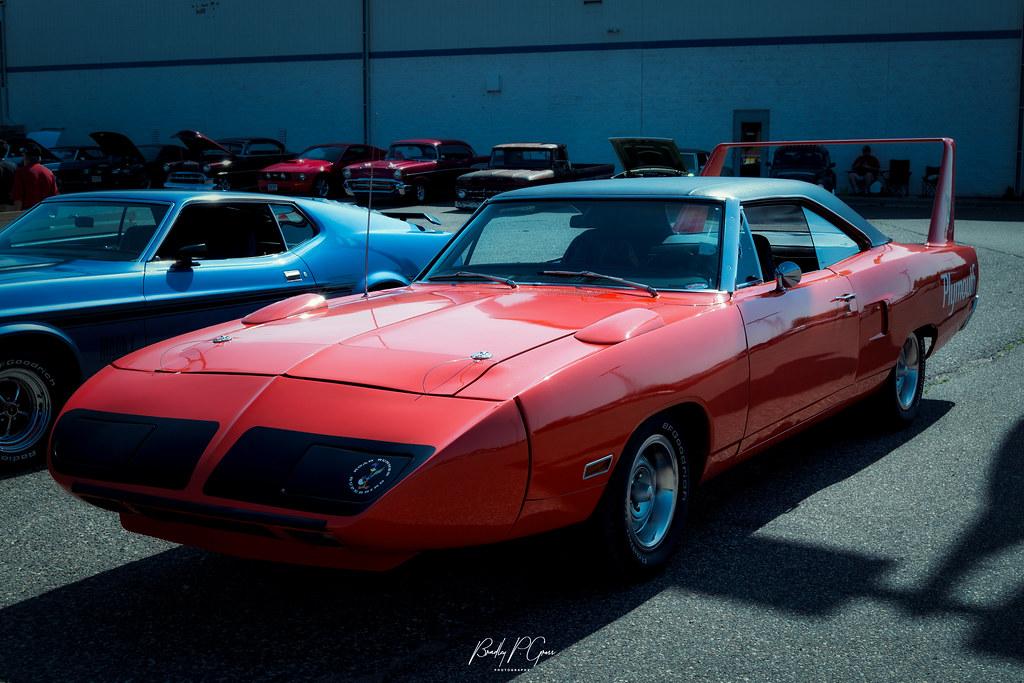Table of Contents
- Exploring the Legacy of Plymouth Cars in Automotive History
- Unique Features That Define Classic Plymouth Models
- Preserving Your Plymouth Car: Essential Maintenance Tips
- Finding the Right Parts for Your Classic Plymouth
- The Enthusiasts Guide to Plymouth Car Shows and Clubs
- Q&A
- To Conclude
Exploring the Legacy of Plymouth Cars in Automotive History
The legacy of Plymouth cars is woven into the fabric of American automotive history, marked by their innovative design and affordability. Emerging in the 1920s as a budget-friendly brand under the Chrysler Corporation, Plymouth quickly established itself as a household name. Renowned for features such as polychrome paint and advanced safety measures, these vehicles appealed to the average American. Key models like the Plymouth Belvedere and the Prowler have left indelible marks on enthusiasts and collectors alike, each emblematic of their era’s technological advancements.
Throughout the years, Plymouth cars became synonymous with bold experimentation. The mid-20th century saw the rise of muscle cars, and Plymouth was at the forefront with standout models like the Barracuda and the Road Runner. These cars captivated the youth culture of the time, combining speed with performance. The Plymouth Superbird, with its iconic aerodynamic design, even earned its place in NASCAR history, showcasing Plymouth’s commitment to innovation on the race track. The brand’s ability to adapt to trends while maintaining a distinct identity played a crucial role in its popularity.
Despite its eventual discontinuation in the early 2000s, the impact of Plymouth cars continues to resonate. Collectors seek out vintage models at auctions and car shows, celebrating the brand’s rich history. Today, they are often sought after in the classic car market due to their unique designs and nostalgic value. Understanding the significance of Plymouth’s contribution enables a deeper appreciation of the evolution of automotive engineering and design, ensuring that their legacy will not be forgotten.


Unique Features That Define Classic Plymouth Models
The rich legacy of Plymouth cars is marked by a series of distinctive characteristics that set them apart from their contemporaries in the automotive market. One of the most notable features is the iconic grille design. Each model boasted a unique grille that not only served an aesthetic purpose but also defined its identity on the road. For instance, the 1957 Plymouth Fury’s grille was a bold statement of chrome and refinement, symbolizing the era’s fascination with style and speed.
Another hallmark of classic Plymouth models is their innovative engineering. Many vehicles were equipped with pioneering technology not commonly found in their rivals. Features such as the Push-Button Transmission introduced in the 1956 Plymouth provided drivers with an effortless driving experience, while the TorqueFlite automatic transmission signified a leap towards smoother gear shifts. These advancements reflected the brand’s commitment to staying at the forefront of automotive innovation during their heyday.
The vehicles also showcased a range of vibrant color palettes and interior designs that appealed to buyers seeking individuality. Plymouth embraced bold hues like bright reds, yellows, and blues, which complemented their flashy chrome accents. Inside, plush seating and stylish dashboard designs enhanced the driving experience. Notably, features such as dual-speed wipers and push-button radios were early introductions that laid the groundwork for modern car amenities, marking Plymouth as a brand that understood the pulse of consumer desires.


Preserving Your Plymouth Car: Essential Maintenance Tips
Owning a classic Plymouth car is a rewarding experience that comes with its own set of responsibilities. Regular maintenance not only preserves the beauty of your vehicle but also enhances its performance. Start by inspecting your engine’s oil levels regularly; clean, adequate oil is crucial for engine health. Changing the oil every 3,000 to 5,000 miles can prevent wear and tear. Don’t forget to check the coolant system to avoid overheating, especially during those hot summer months.
Another key aspect of maintenance is the condition of your tires and brakes. Ensuring you have properly inflated tires will not only improve fuel efficiency but will also provide better handling. Keep an eye on the tread depth, as worn tires can compromise safety. Similarly, regular brake inspections are vital; replacing brake pads when they become too thin can prevent costly repairs later. Create a checklist that includes your recommended tire rotation schedule — usually every 5,000 to 8,000 miles — to keep the tires wearing evenly.
Lastly, don’t underestimate the importance of a thorough exterior and interior cleaning. Waxing your Plymouth periodically protects the paint from fading and rusting. Interior care should include treating the dashboard and seats with appropriate cleaners to prevent cracking and discoloration. Consider documenting your maintenance routines in a log, which can help in tracking repairs and services over time, as well as maintain the vehicle’s resale value.


Finding the Right Parts for Your Classic Plymouth
When it comes to restoring a classic Plymouth, sourcing the right parts can be both an adventure and a challenge. One of the first steps is identifying the specific model and year of your Plymouth, as parts can vary significantly between models. Utilize online forums and classic car clubs dedicated to Plymouth enthusiasts. These communities often share invaluable resources and contacts where you can find both OEM and aftermarket parts. Engaging with fellow Plymouth owners can also lead to recommendations for trustworthy suppliers, making your search more efficient.
Another effective strategy is exploring local salvage yards and classic car expos, where you can find rare components that may no longer be in production. Make sure to bring along a list of the parts you need, along with the corresponding specifications. When purchasing, look for parts that maintain the integrity of your vehicle’s originality, as this can greatly affect both performance and resale value. A well-protected vintage car stands as a testament to its craftsmanship, so consider the following tips when assessing potential parts:
- Check for originality: Verify that parts are genuine Plymouth components whenever possible.
- Inspect condition: Look for rust, wear, and functionality before making a purchase.
- Research prices: Compare prices across different platforms to ensure you’re getting a fair deal.
Additionally, if you’re comfortable with online shopping, numerous websites cater specifically to classic car enthusiasts. They offer a wide range of parts, from bolts to body panels, often featuring detailed descriptions and compatibility information. It’s essential to read reviews and check return policies before committing to a purchase. The following table outlines some popular online resources for sourcing Plymouth parts:
| Website | Specialty | Notes |
|---|---|---|
| YearOne | Classic Reproduction Parts | Known for high-quality reproductions. |
| Classic Industries | General Classic Parts | Wide range of brands including Plymouth. |
| eBay Motors | Used & New Parts | Good for rare finds; check seller ratings. |
By following these tips and utilizing available resources, you can enhance your chances of successfully , ensuring that your restoration journey is both enjoyable and rewarding.


The Enthusiasts Guide to Plymouth Car Shows and Clubs
Every year, Plymouth car enthusiasts eagerly anticipate the season’s lineup of car shows and club meets that celebrate the storied legacy of these classic vehicles. From local gatherings to larger scale exhibitions, there’s a rich tapestry of events that cater to fans of all ages. Whether you own a Plymouth or simply admire the craftsmanship of these iconic cars, the atmosphere at these events is nothing short of electric.
Car clubs serve as the backbone of the Plymouth community, providing a welcoming environment for enthusiasts to connect, share knowledge, and participate in various activities. Some of the standout clubs include:
- Plymouth Owners Club: Dedicated to preserving the rich history and legacy of Plymouth cars.
- Plymouth Barracuda Club: Focused on the love for Barracuda models, with members sharing restoration tips and experiences.
- Plymouth Road Runner Forum: An online and offline community for enthusiasts of the Road Runner series, featuring meet-ups and shows.
Regularly scheduled shows often take place at local fairs, racetracks, and parks, showcasing a variety of vehicles. Events typically feature:
| Event Name | Date | Location |
|---|---|---|
| Plymouth Classic Car Show | June 10th | City Park Pavilion |
| Annual Plymouth Parade | August 15th | Main Street |
| Plymouth Muscle Car Meet | September 5th | Racetrack Grounds |
For those passionate about restoration, learning, or simply admiring vintage vehicles, these shows and clubs offer an invaluable opportunity to immerse oneself in the Plymouth culture. Engaging with fellow enthusiasts and sharing experiences only enhances the love for these remarkable cars, fostering connections that often last a lifetime.




0 Comments